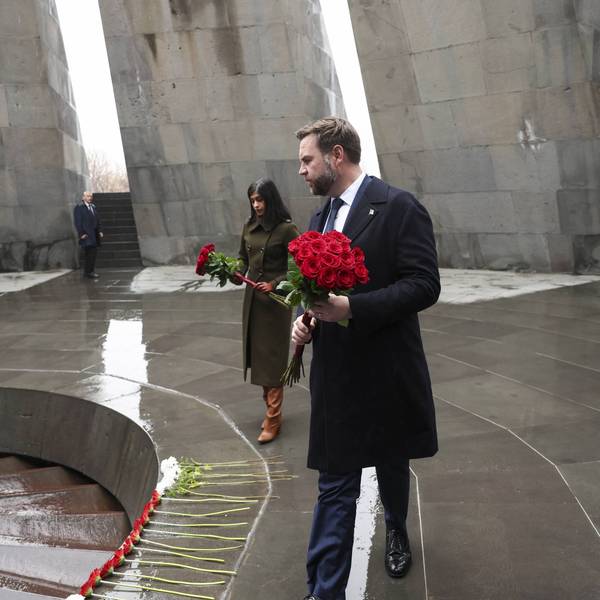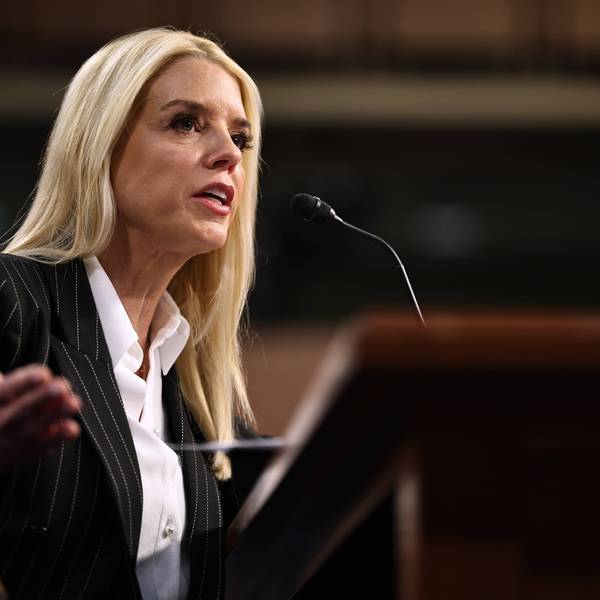Historian Greg Grandin, in his 2015 biography of Henry Kissinger, estimated that Kissinger’s policies were responsible for 3 to 4 million deaths around the world—from Vietnam to Pakistan, to Indonesia, to Chile, to southern Africa, to the Middle East. Grandin’s damning indictment against the former U.S. national security adviser and secretary of state is powerful and overwhelming.
But large numbers like 3 to 4 million mask the very real pain, terror, and tragedy suffered by those individuals and their families. Look at the cases of Charles Horman, Frank Teruggi, and Ronni Moffit. All three were Americans killed by the Kissinger-Nixon backed Chilean military junta that overthrew the democratically elected socialist government of Salvador Allende.
Horman and Teruggi were journalists in Chile in 1973 when the coup happened. They were taken to the infamous National Stadium in Santiago where they were executed along with thousands of Chileans. Their story was painfully yet meaningfully represented in the 1982 film Missing with Jack Lemon and Sissy Spacek.
My wish would be that anyone who praises Kissinger or cites his “accomplishments” must also acknowledge his victims and know some of their names.
"Ronni Moffit was a researcher at the Institute for Policy Studies in Washington, D.C, who was riding in a car with her husband Michael Moffit and the former Chilean diplomat Orlando Letelier in Sheridan Circle when their car exploded. It was determined that a bomb was planted by agents of the Chilean secret police most likely under orders from junta leader General Augusto Pinochet.
The record indicates that Kissinger told Pinochet in a phone conversation in June of 1976 that his regime was a victim of leftist propaganda on human rights:
In the United States as you know we are sympathetic with what you are trying to do here. We want to help, not undermine you. You did a great service to the West in overthrowing Allende.
A few months later, Moffit and Letelier were murdered. Letelier’s lower torso was blown away and his legs had been severed. Moffit’s larynx and carotid artery were slashed by a piece of shrapnel and she drowned in her own blood.
Most Americans today don’t know about these murders or the names of the three victims mentioned above. After all, it was almost 50 years ago and people have become inured to the many atrocities committed at home and abroad since then. The death of Henry Kissinger allows us to remember that his 3 to 4 million victims are not just amorphous entities but individuals who had names, families, lives, hopes, and dreams. They did not deserve to die miserable deaths.
My wish would be that anyone who praises Kissinger or cites his “accomplishments” must also acknowledge his victims and know some of their names. In particular, American media figures, politicians, and prognosticators should know who Charles Horman, Frank Teruggi, and Ronni Moffit were, how they died, and who was responsible for their deaths. Their families, friends, and descendants certainly know and deserve to have their pain and loss acknowledged.
Henry Kissinger never had to answer for his crimes or face his victims’ families. There is nothing we can do about this now that he is dead. But we can at least insure that his crimes and misdeeds are never forgotten.




